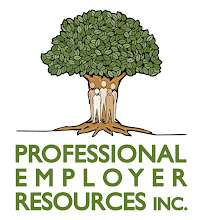Overview
The federal Fair Labor Standards Act imposes certain restrictions on the employment of children younger than 18. For nonagricultural employment, 16- and 17-year-olds generally are prohibited from working in certain hazardous occupations, but are not restricted from working during school hours or subject to the federal limits on the number of hours worked. Children 14 and 15 generally are permitted to work a limited number of hours outside of school time in nonhazardous jobs. Children younger than 14 generally cannot be employed except in certain narrowly defined jobs.
Special rules govern employment of minors in agriculture. Employment of children as young as 10 is permitted for certain jobs. Children younger than 16 generally can be employed only outside of school hours.
States also have laws regulating minimum ages, the types of employment allowed, and the hours of work. Employers must comply with any state provisions that are stricter than federal provisions.
General Child Labor Rules
These general rules apply to the employment of children younger than 18:
• Children younger than 14. The employment of children younger than 14 is forbidden, unless they are working for a parent who is the sole proprietor of a business or as actors or newspaper carriers
• Children younger than 16. Children 14 and 15 can work outside of school hours, but only in nonhazardous jobs. During holidays and school breaks, 14- and 15-year-olds can work as many as eight hours per day and 40 hours per week from 7 a.m. to 7 p.m., or 7 a.m. to 9 p.m. from June 1 through Labor Day. When school is in session, work hours are limited to three per day and 18 per week.
Effective July 19, 2010, children 14 and 15 can be hired to perform work of an intellectual or artistically creative nature, such as computer programming, writing software, teaching or performing as a tutor, serving as a peer counselor or teacher's assistant, singing, playing a musical instrument, and drawing. This work must be similar to that performed in an office setting and not involve the use of power-driven equipment other than office machines. Such employment is permitted in any setting or occupation not considered hazardous to young workers and is subject to all otherwise applicable hour and time standards
Children 14 and 15: Hours of Work
By law, 14- and 15-year-olds can work:
• outside of school hours, unless enrolled in an approved work training program;
• three hours on any school day or eight hours on a nonschool day;
• 18 hours in any school week or 40 hours in a nonschool week; and
• 7 a.m. to 7 p.m. or until 9 p.m. June 1 to Labor Day.
Effective July 19, 2010, for compliance purposes, the workweek of a 14-and 15-year-old employee is defined as the same workweek the employer establishes for the youth to determine overtime compensation—a fixed and regularly occurring span of 168 hours, consisting of seven consecutive 24-hour periods.
Also effective July 19, 2010, work-study students 14 and 15-years old participating in a valid Work Experience and Career Exploration Program (WECEP) can work up to 18 hours a week, part of which can be during school hours, based on the following continuous four-week cycle:
• In three of the four weeks, the student can work during school hours on only one day per week for no more than eight hours.
• During the remaining week of the four-week cycle, the student can work during school hours on no more than two days for no more than eight hours during each of those days.
• Otherwise, the above standard work time-of-day and hours-worked rules for 14-and 15-year-olds applies.
• Children 16 and 17.
Children 16 and 17 can work an unlimited number of hours per day or week. They are prohibited, however, from working in hazardous jobs, with some exceptions for student learners and apprentices.
Enforcement
FLSA's child labor provisions are enforced by Labor Department's Wage-Hour Division. Labor Department inspectors can enter an employer's premises to determine if a violation of FLSA's child labor provisions exists.
Penalties
Penalties for violations can include:
• a ban on shipping goods for 30 days
• a fine up to $11,000 for each violation or
• a fine of up to $50,000 for violations that cause the death or serious injury of any employee younger than 18, which may be doubled for repeated or willful violations .
In addition, employers that willfully violate the law can be charged criminally and subject to a fine up to $10,000 for each violation, a prison sentence up to six months, or both. However, imprisonment cannot be imposed before a second conviction for violating the child labor laws
PER INSIDER
Wednesday, September 1, 2010
Subscribe to:
Post Comments (Atom)








No comments:
Post a Comment